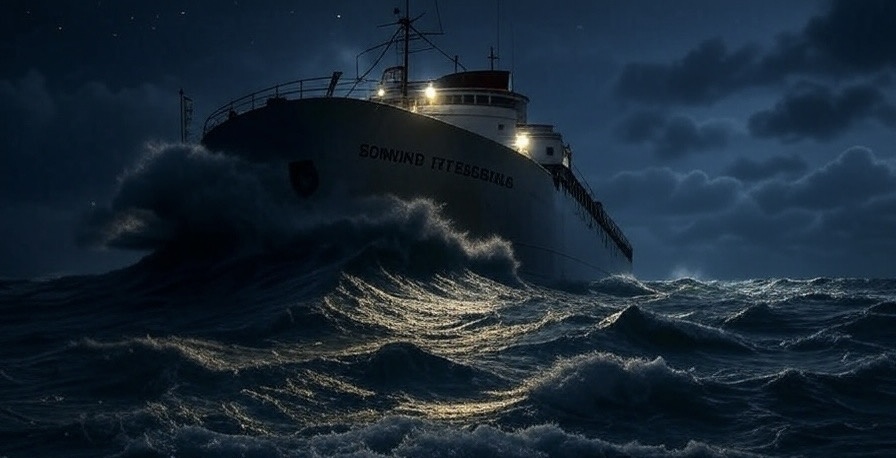In the pantheon of modern folk ballads, few songs carry the emotional heft and poetic gravitas of Gordon Lightfoot’s The Wreck of the Edmund Fitzgerald. Released in 1976, less than a year after the tragic sinking of the freighter that bore the same name, the song is more than a retelling, it is a eulogy, a ghost story, and a meditation on the power of nature and the fragility of human life.
The Edmund Fitzgerald was a massive iron ore carrier, once the largest ship on the Great Lakes, a steel leviathan that met its end on November 10, 1975, during a violent storm on Lake Superior. All 29 souls aboard were lost to the deep. There were no survivors, no distress calls, only a sudden disappearance in the night, leaving behind families, questions, and silence.
When Lightfoot, the Canadian troubadour known for his rich voice and storytelling genius, read a news article about the tragedy, something struck him. Not just the scale of the disaster, but the dignity of the men who perished, and the almost mythic quality of their fate. Out of that resonance came the song, a six-minute ballad that climbs like waves and crashes like thunder, carrying the listener into the heart of the storm.
“The lake, it is said, never gives up her dead
When the skies of November turn gloomy.”
With lyrics that feel chiseled from lake stone and wind, Lightfoot charts the course of the Fitzgerald’s final voyage. He names the men and the places, but never drowns the story in sentimentality. Instead, he gives it gravity, respect, and space for mourning:
The lines are cold and beautiful, as unforgiving as the water itself. Yet within them is reverence, for the crew, for their families, for the truth that some stories deserve to be sung, not just told.
Musically, the song is spare and haunting. No flashy guitar solos, no crescendo of rescue or redemption. Just a rolling rhythm, like the swell of a great lake under wind, and Lightfoot’s voice, solemn, steady, and tinged with sorrow. It mirrors the inevitability of nature and the quiet endurance of memory.
The Wreck of the Edmund Fitzgerald is not merely a song; it is a monument. While stones and plaques mark the spot where the ship went down, it is Lightfoot’s ballad that brought the story into the hearts of millions. It is the reason schoolchildren know the name of the ship, the reason families of the lost found solace in art. It is folklore forged in the modern age, timeless in its cadence, eternal in its ache.
And perhaps that is the true measure of its greatness: not just that it informs, but that it mourns. It listens to the wind on Superior and gives it voice. It feels the weight of 29 lives and carries them, still, through every verse.
As long as there are storms to brave, and songs to sing of those who faced them, Gordon Lightfoot’s elegy will endure, echoing across the water like a bell tolling in the dark.

Leave a Reply